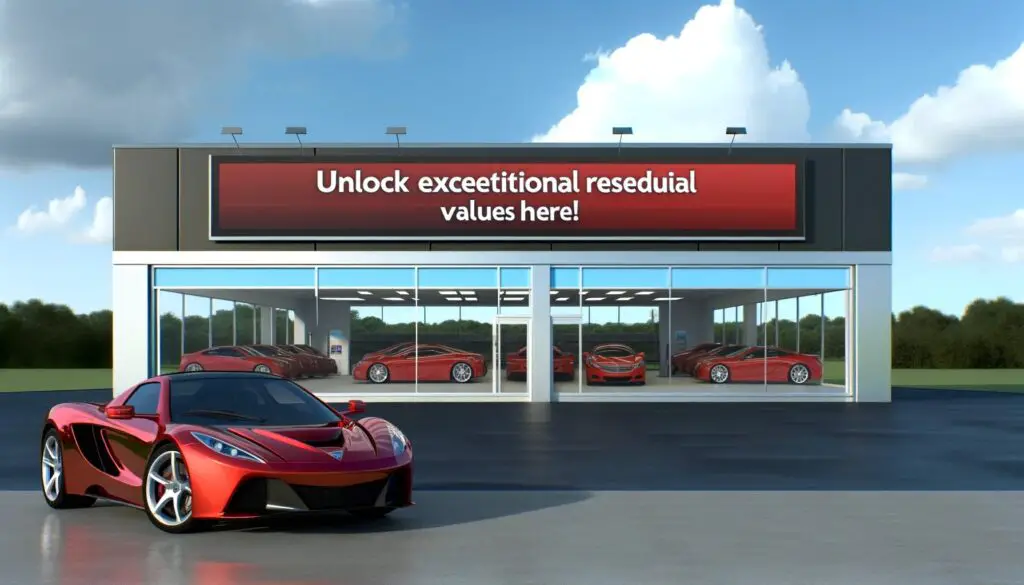Luxury vehicles, with their sleek designs, advanced features, and prestige, have always been desirable, yet often financially out of reach. However, with the option of leasing, accessing the world of premium cars becomes more attainable than ever before. In this guide, we delve into the intricacies of premium car leasing, revealing how individuals can secure these coveted vehicles at affordable rates.
Understanding Premium Car Leasing
Premium car leasing offers individuals the opportunity to drive high-end vehicles without the commitment of ownership. Unlike purchasing, where one assumes full responsibility for the vehicle, leasing involves renting the car for a specified period, typically two to four years. During this time, lessees make monthly payments based on the car’s depreciation value rather than its total cost, making it a more cost-effective option for many.
Factors Influencing Premium Car Lease Prices
1. Depreciation Rates
Luxury vehicles are subject to higher depreciation rates compared to standard cars due to their initial high market value and rapid technological advancements. Understanding how depreciation impacts lease costs is crucial for budget-conscious consumers.
2. Manufacturer Incentives
Manufacturers often offer incentives and rebates to promote leasing, such as reduced interest rates or cash bonuses. These incentives can significantly lower monthly payments and upfront costs, making leasing even more appealing.
3. Residual Value
The residual value of a car, or its estimated worth at the end of the lease term, plays a significant role in lease pricing. Luxury cars with higher residual values typically result in lower monthly payments, as the depreciation cost is spread out more evenly.
Researching the Right Car
Before diving into a lease agreement, it’s essential to research and compare different luxury car models. Factors such as fuel efficiency, features, and maintenance costs should be carefully considered to ensure the chosen vehicle aligns with personal preferences and budgetary constraints.
Evaluating Lease Terms and Conditions
Understanding the terms and conditions of a lease agreement is paramount to avoid any surprises down the road. Lessees should pay close attention to lease duration options, mileage limits, and maintenance responsibilities to ensure they align with their lifestyle and driving habits.
Negotiating Lease Terms
Armed with research on current market rates and competitor offers, lessees can negotiate favorable lease terms. Negotiating down payments, monthly payments, and additional perks can result in significant savings over the lease term.
Capitalizing on Manufacturer Incentives
Exploring lease deals offered directly by manufacturers can yield substantial savings. Timing leases to coincide with promotional periods and understanding eligibility criteria for incentives are essential strategies for maximizing savings.
Utilizing Brokerage Services
Car leasing brokers can offer invaluable assistance in finding the best lease deals. Their expertise in navigating the leasing landscape and negotiating on behalf of clients can save time and money while ensuring access to exclusive offers.
Understanding Lease Fees and Taxes
Acquisition fees, disposition fees, and sales tax considerations are important aspects of leasing that can impact overall affordability. Being aware of these fees and understanding how they are calculated is essential for accurate budgeting.
Exploring Lease-End Options
As the lease term nears its end, lessees have several options to consider. Whether renewing the lease, purchasing the car, or exploring new options, understanding the implications of each choice is crucial for making an informed decision.
Alternatives to Traditional Leasing
For those seeking flexibility, alternatives such as lease assumption, lease swapping platforms, and short-term rentals provide viable options to experience luxury vehicles without long-term commitments.
Budgeting for a Premium Car Lease
Calculating total lease costs and setting a realistic budget are fundamental steps in the leasing process. Considering the financial implications of leasing and ensuring affordability throughout the term are essential for a stress-free leasing experience.
Understanding Credit Requirements
Credit scores play a significant role in lease terms, with higher scores often translating to better rates and terms. Strategies for improving credit before leasing and options for individuals with less-than-perfect credit are explored to help readers navigate this aspect effectively.
Addressing Insurance Needs
Navigating insurance requirements for leased vehicles and exploring comprehensive coverage options are essential for protecting both the vehicle and the lessee’s financial interests. Negotiating insurance rates and understanding how costs factor into overall affordability are key considerations.
Tips for Maintaining a Leased Luxury Car
Maintaining a leased luxury car is not only about aesthetics but also about avoiding additional charges at lease-end. Adhering to maintenance schedules, understanding wear-and-tear guidelines, and keeping the car in optimal condition are essential practices for lessees.
Assessing Your Lifestyle and Needs
As lifestyle and transportation needs evolve, reassessing the suitability of the leased car becomes imperative. Ensuring the vehicle aligns with future plans and lifestyle changes can help avoid dissatisfaction and ensure a seamless leasing experience.
Frequently Asked Questions (FAQs)
- Minimum Credit Score: The minimum credit score required varies but generally falls within the range of 620 to 700 for luxury car leases.
- Negotiating Purchase Price: While it’s possible to negotiate the purchase price of a leased car at the end of the term, it’s subject to the lessor’s discretion.
- Early Termination Penalties: Yes, there are typically penalties for terminating a lease early, which can include fees equivalent to remaining lease payments.
- Leasing vs. Financing: Leasing involves renting a vehicle for a set period, while financing entails purchasing the vehicle through a loan with the intention of ownership.
- Exceeding Mileage Limit: Exceeding the mileage limit on a lease usually incurs additional fees per mile, which can vary depending on the leasing company.
- Customizing Leased Cars: Customization options for leased cars may be limited, as any modifications must typically be reversible and approved by the lessor.
- Timing for Lease Deals: Lease deals may be better at certain times of the year, often coinciding with promotional periods or end-of-year clearance events.
- Insurance Coverage: Insurance coverage for leased vehicles typically includes liability, collision, and comprehensive coverage, with specific requirements varying by lessor.
- Suitability for First-Time Lessees: Leasing a luxury car can be a viable option for first-time lessees, especially with the guidance of experienced brokers and thorough research.
- Common Mistakes to Avoid: Common mistakes when leasing a luxury car include underestimating mileage needs, overlooking lease terms, and neglecting maintenance responsibilities.
Conclusion
In conclusion, securing an affordable premium car lease is not only possible but also a practical and economical choice for many individuals. By leveraging the tips and strategies outlined in this comprehensive guide, readers can confidently navigate the leasing process, unlock the luxury they desire, and embark on a journey of unparalleled driving experience without breaking the bank.





